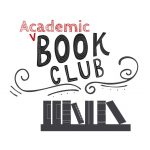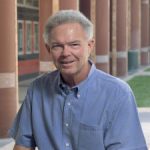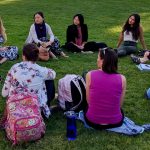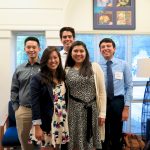-
PROJECTS
Working groups and faculty-led projects
A two day pre-read workshop on the book manuscript Moral Growth: Virtue and Disruptive Experiences by Evgenia Mylonaki (University of Patras, Greece). Professor Mylonaki argues that moral growth is a disruptive experience that alters one’s entire vision of the world. The manuscript brings into sharp focus an understanding of moral growth and virtue as depending crucially on our capacity to think ourselves into the being of another individual. The workshop should be of interest to anyone interested in cutting-edge international contemporary ethics, as well as those interested in the value and significance of individuality or the way disruptive experiences are expressed and thematized in both fiction and philosophy.
Faculty Coordinators
Kim Frost (Philosophy)
Alexandra Newton (Philosophy)
What do Duchamp’s readymades, synthesizer sounds, and microwave popcorn settings have in common? They are presets – default
settings that facilitate ready-to-hand use. Our uses of presets consent to norms designed for “standard” users; from Al content generators to Photoshop editing filters, presets on technology often replicate cultural biases of whiteness, sexism, ableism, and Western privilege. But artists can also recontextualize presets to interrogate entrenched conventions otherwise known as cultural presets. In this working group, UCR scholar-practitioners across art/art history, media and cultural studies, music, philosophy, and environmental humanities will host public roundtables and DJ and synthesizer workshops. Across these forums, participants will question: how have linguistic, technological, and cultural presets driven capitalism, colonialism, and state sovereignty? When climate disaster and political extremism threaten how we typically engage with our environments, can we program new presets? How can critics and creators produce multi modal forms of knowledge to disentangle presets from their deepseated norms?
Faculty Coordinator
Amy Skjerseth (Music)
Over 6 meetings spread across Fall 2025, Winter 2026, and Spring 2026, a working group of four assistant professors in CHASS will convene at UC Riverside to workshop chapters from their in-progress monographs. The goal of these sessions will be to provide in-depth manuscript feedback from fellow pre-tenure scholars not in their immediate fields, thereby allowing them to refine their individual interventions in Abolitionist studies, Critical Filipinx Studies, Asian American Studies, Chicanx Studies, Queer and Trans Latinx Studies, Critical Refugee Studies, and more. While workshopping chapters intended for publication with a university press, the group will also discuss the following questions: what does it mean to write for an “interdisciplinary” audience? How does an author develop their books’ interdisciplinary (and interaudience) commitments while learning about the expectations of a departmental discipline? Through this series, the working group aims to bring the values of praxis and collective care to the writing and review process.
Faculty Coordinators
Trisha Remetir, Comparative Literatures and Languages
Cecilia Vasquez, Anthropology
Liz Rubio, Gender & Sexuality Studies
Jack Caraves, Gender & Sexuality Studies
The UCR Science and Technology Initiative will host a series of workshops to advance an interdisciplinary dialogue by UCR faculty across colleges about existing Science and Technology Studies (STS) knowledge and research. The participants will share interdisciplinary ways of knowing regarding STS and help to define the challenges, expectations, and possible future viability of a more integrative teaching and research model. The outcomes of these workshops will include creating new synergies across disciplines and with Island Empire communities. The workshops are intended to promote the collaborative research and problem solving that will support UCR’s goal to serve as a global partner and premier research institution in the international field of STS Studies.
Faculty Coordinators
Linda Hall (Anthropology)
Yolanda Moses (Anthropology)
The Horror of Color Working Group is a space for students and faculty to collaboratively engage research in horror studies with a specific focus on scholarship on horror and race and horror cultural productions by U.S.-based creators of color. The group brings together students and faculty across the humanities and social sciences to address topics ranging from the development and solidifying of genres such as Afro Horror, Indigenous Horror, and U.S. Latinx horror to fandoms of color with the goal of fostering intellectual exchange on the topic of EthnoHorror by 1) holding discussions of works in progress, 2) organizing conversations around shared readings, and 3) invited talks/panels.
Faculty Coordinators
Magda Garcia (English)
-
CONFERENCES
Conferences sponsored by the Center for Ideas and Society
In Defense of Women: Women and Theater in the Age of Shakespeare is an event created by Erith Jaffe-Berg and Theatre Dybbuk, a Los Angeles-based theatre company which brings together a talk with performed readings and live music. The project is based on an early-modern theorist and playwright named Leone de’ Som mi who wrote a bilingual (Hebrew and Italian) treatise defending women that was widely disseminated and published starting in the 1550s. The poem braided together Jewish and Catholic culture in a time of increased segregation and ghettoization in many parts of Europe. In the poem, de’ Som mi championed women whom he saw as on an equal level with men in terms of their accomplishments, leadership ability and goodness.
Faculty Coordinator
Erith Jaffe-Berg, Theatre Film & Digital Production
The “Black Beings in Water” symposium will feature a panel of working group members discussing both individual and group projects, an experimental “collective keynote” which would put into conversation two thinkers from different disciplines, and the debut of a small popup gallery exhibiting working group members’ artwork, photos, and artifacts of Black beings and doings in water. Working group members include literary and cultural critics, geographers, and archaeologists from UCs and private institutions who also consider ourselves to be public intellectuals and/or artist intellectuals. The symposium is interdisciplinary, multimedia, and public-facing, with conversations anchored not only in the academic intervention of theorizing blackness and water, but in the belief that working with and being in water as Black people is healing ancestral work.
Faculty Coordinator
Jalondra Davis, English
The field of Game Studies has grown exponentially over the past two decades, emerging as a vital interdisciplinary area that intersects with the humanities, social sciences, arts, and technology. Despite this growth, UC Riverside remains one of the few UC campuses without a formalized program, designated degree, or research hub dedicated to Game Studies. The California Games and Interactive Media Conference seeks to address this gap by positioning UCR as a central node for academic collaboration and innovation in the field. Building on the success of our previous event (Latin American Games Studies Conference), which attracted over 70 attendees-including faculty, graduate students, and international participants -this conference will serve as a platform to map the current state of Game Studies in the region, foster interdisciplinary dialogue, and establish UCR as a key space for this expanding field.
Coordinators
Nico Valdivia Hennig, Hispanic Studies
Ilya Brookwell, Media & Cultural Studies
Jorge Poveda Yanez, Dance Department
The Critical Yoga Studies Conference marks the 10-year anniversary of Race and Yoga journal and the 15-year anniversary of the Race and Yoga Working Group, both of which have shaped the field of Critical Yoga Studies. This interdisciplinary conference will bring together scholars, practitioners, and activists to reflect on the journal’s contributions, explore emerging research, and strategize future directions for the field. The conference will feature a keynote from Dr. Blu Wakpa reflecting on the founding and evolution of Race and Yoga and future possibilities for decolonizing yoga practice and scholarship. By fostering dialogue across disciplines and communities, this conference will celebrate Race and Yoga’s impact while envisioning new possibilities for the field and the future of public scholarship.
Coordinators
Samantha Griggs, Study of Religion
Matthew King, Study of Religion
“Co-Creativity in Music and Al: Improvisation, Interaction, Composition” is an interdisciplinary initiative focusing on Somax2-a pioneering Al-driven improvisation system developed by I RCAM-to explore how artificial intelligence reshapes musical creativity. By uniting ethnomusicology, musicology, and media arts, this conference fosters dialogue on Al’s role as a cocreative partner in composition, performance, and research, rather than a mere technical aid. Presentations, workshops, and live demonstrations will highlight Al’s capacity to engage across genres, from classical and experimental music to hip hop and popular forms, emphasizing real-time interaction, cultural context, and innovative sonic aesthetics. Through a flexible format, the event aims to inspire new research collaborations, attract external funding, and expand community involvement. Ultimately, “Co-Creativity in Music and Al” envisions a future where human and machine collaborate symbiotically, opening novel frontiers for artistic expression and scholarly inquiry.
Coordinators
Paulo Chagas, Music
Liz Przybylski, Ethnomusicology
Nikolay Maslov, UCR ARTS
Ivana Petkovic Lozo, Musicologist
For questions or more information: Katharine.Henshaw@ucr.edu
-
PROGRAMS
Programs
–
Community Conversations
 Academic Book Club awards cover the purchase of books for virtual groups of faculty and/or graduate students who agree to meet up online to discuss sections of the book at least 5 times over the coming quarter. Though we ask that at least half the participants be CHASS faculty and/or graduate students, conveners and other club members may be from any school or college at UCR.
Academic Book Club awards cover the purchase of books for virtual groups of faculty and/or graduate students who agree to meet up online to discuss sections of the book at least 5 times over the coming quarter. Though we ask that at least half the participants be CHASS faculty and/or graduate students, conveners and other club members may be from any school or college at UCR.
Club leaders convene meetings via Zoom or other online meeting room services. Selected titles should have the potential to engage multiple perspectives, disciplines and methods in critical inquiry. Inclusive, cross-disciplinary groups are encouraged. At the end of the quarter, groups will be asked to provide feedback on their experiences.
2025 Summer Book Clubs:
Claudia Holguin Mendoza, convener – Youth Participatory Action Research in Your Classroom
Rachel Wu, convener – Broken Country
Kate Wanchi Huang, convener – Imperial Eyes: Travel Writing and Transculturation by Mary Louise Pratt
Alejandra Dubcovsky, convener – Republic of Indians Empires of Indigenous Law in the Early American South
Thomas Kegler, convener – A Democratic Theory of Truth
Cassia Roth, convener – Immaterial Archives: An African Diaspora Poetics of Loss
Research and Publication
 Research Writing Groups encourage sustained writing practices, productivity and networking through regularly scheduled writing sessions.
Research Writing Groups encourage sustained writing practices, productivity and networking through regularly scheduled writing sessions.
Writing Group awards provide $25 gift cards to participants who attend a majority of scheduled meetings. Groups of 4-8 participants agree to meet at least five times over the quarter. Though we ask that at least half the participants be CHASS faculty and/or graduate students, conveners and other group members may be from any school or college at UCR. Group leaders convene meetings via Zoom or other online meeting room services. At the end of the quarter, groups will be asked to provide feedback on their experiences.
Summer 2025 Groups
Miriam Villazón Valbuena, convener – 4 members
Rachel Wu, convener – 7 members
Jorge Leal, convener – 6 members
Magnolia Yang Sao Yia, convener – 6 members
Marissa Hull, convener- 5 members
Jaqueline Dighero, convener, group 1 – 8 members
Jaqueline Dighero, convener, group 2 – 8 members
Liz Przybylski, convener – 5 members
Project Development Awards provide funds to help CHASS faculty members substantially move a project (book manuscript, film, play or substantial creative project) toward completion and submission/production (to a press, film festival, theatre, gallery show, etc.) by creating opportunities to receive input and feedback on works-in-progress.
Proposals may include meetings with scholars or subject matter experts for an open discussion of the faculty member’s work, meetings with community partners, workshops, experimental productions, and other collaborative formats for soliciting feedback on a project. Special consideration will be given to projects that have potential to impact tenure and/or promotion. Applicants must clearly identify how the proposal supports the planned completion or production of the next stage of their project.
Contact Katharine Henshaw for more information.
2024-25 Participants
Liz Przybylski (Music) Creativity and Constraint
Elizabeth Rubio (Gender and Sexuality Studies) Dreams Beyond Recognition: The Queer Temporality of Asian American Immigrant Justice Activism
Amy Skjerseth (Music) Instrumental Presets: The Visible History of Music Technology
2023-24 Participants
2020-21 Participants
Farah Godrej (Political Science) “Prison Yoga and Meditation: South Asian Text and Practice in the US Carceral System”
Anthony Jerry (Anthropology) “Chasing Blackness: Racial Economies and the Production of Citizenship in Mexico”
Richard Rodriguez (Media & Cultural Studies) “Undocumented Desires: Fantasies of Latino Male Sexuality”
Michele Salzman (History) “The ‘Falls’ of Rome: Transformations of the City in Late Antiquity (270-603 CE)”
Dana Simmons (History) “Hungry, Thinking with Animals” (Funded by a a grant from the University of California Office of the President Multi-campus Research Programs and Initiative Funding through the UC Humanities Research Institute.)
Victoria Reyes (Sociology) Academic Outsider
Annika Speer (Theatre, Film & Digital Production) Missing: A Musical Dramedy
Bronwyn Leebaw (Political Science) After Slumber: Transformative Justice, Memories of Resistance, and the Lessons of the Past
Helpful Resources
Faculty Book Workshop Guide by CISSR
Workshop Planning Guide by Matthew Salganick
How to Plan a Book Manuscript Workshop by Karen Tani
- new projects
- emerging knowledge
- recent publications
- and other forms of new scholarship and creative work in CHASS
Recently revised to widen eligibility and expand project types, the program aims to raise the profile of CHASS research and creative projects, encourage collaboration, and nurture intellectual community by bringing scholars and artists together to share and discuss new work.
 Made possible by gifts from Emory’s family and friends, the Emory Elliott Book Award honors the book published by a CHASS faculty member during the previous academic year that, in the judgment of the selection committee, best exemplifies the values that characterized Professor Elliott and his contributions to life and letters.
Made possible by gifts from Emory’s family and friends, the Emory Elliott Book Award honors the book published by a CHASS faculty member during the previous academic year that, in the judgment of the selection committee, best exemplifies the values that characterized Professor Elliott and his contributions to life and letters.
Among these many contributions are the capacity to recognize complexity together with the passion to clarify, the ability to contribute to a conversation rather than to summarize agreements already established, and the intent to further a tradition of creative and scholarly munificence.
Award Winners
-
2024: Randol Contreras (Media & Cultural Studies) – The Marvelous Ones: Drugs, Gang Violence, and the Resistance in East Los Angeles
Finalists: Imani Kai Johnson (Dance) – Dark Matter in Breaking Cyphers: The Life of Africanist Aesthetics in Global Hip Hop
Liz Przybylski (Music) – Sonic Sovereignty: Hip Hop, Indigeneity, and Shifting Popular Music Mainstreams -
2023: Alejandra Dubcovsky (History) – Talking Back: Native Women and the Making of the Early SouthFinalists: Philipp Lehmann (History) – Desert Edens: Colonial Climate Engineering in the Age of Anxiety and Jennifer Syvertsen (Anthropology) – Dangerous Love: Sex Work, Drug Use, and the Pursuit of Intimacy in Tijuana, Mexico
- 2022: Allison Hedge Coke (Creative Writing) – Look at This Blue
Sherryl Vint (English) – Biopolitical Futures in Twenty-First-Century Speculative Fiction
- 2021: Anusha Kedhar (Dance) – Flexible Bodies: British South Asian Dancers in an Age of Neoliberalism
Brandon Robinson (Gender and Sexuality Studies) – Coming Out to the Streets
- 2020: Victoria Reyes (Sociology) – Global Borderlands: Fantasy, Violence and Empire in Subic Bay, Philippines
- 2019: Jade Sasser (Gender & Sexuality Studies) – On Infertile Ground: Population Control and Women’s Rights in the Era of Climate Change
Steven Brint (Sociology) – Two Cheers for Higher Education: Why American Universities Are Stronger Than Ever―and How to Meet the Challenges They Face - 2018: Sang-Hee Lee (Anthropology) – Close Encounters with Humankind: A Paleoanthropologist Investigates Our Evolving Species
- 2017: Charmaine Craig (Creative Writing) – Miss Burma
- 2016: Anthea Kraut (Dance) – Choreographing Copyright: Race Gender, and Intellectual Property Rights in American Dance
- 2015: Conrad Rudolph (Art History) – The Mystic Ark: Hugh of Saint Victor, Art, and Thought in the Twelfth Century
- 2014: Amanda J. Lucia (Religious Studies) – Reflections of Amma: Devotees in a Global Embrace
- 2013: Maudemarie Clark (Philosophy) – The Soul of Nietzsche’s Beyond Good and Evil
Perry Link (Comparative Literature) – An Anatomy of Chinese: Rhythm, Metaphor, Politics - 2012: Priya Srinivasan (Dance) – Sweating Saris: Indian Dance as Transnational Labor
- 2011: Michelle Raheja (English) – Reservation Reelism: Redfacing, Visual Sovereignty, and Representations of Native Americans in Film
Student Research
Graduate student fellows in this program receive support for summer writing projects and the opportunity to connect with other UC graduate fellows in virtual meetings and workshops. The fellowships are funded through a collaborative grant from the UC Humanities Consortium.
2024 Fellows
Iliana Cuellar, Comparative Literature, Palimpsexts: Autotheory as Worldmaking in Feminist Film and Video
Sean Keenan, History, The Haiphong – Kunming Railroad: The Spaces Between
Othandwayo Mgqoboka, Anthropology, Ways of Dying: Antiblackness, Democracy and the Question of (un)Freedom in South Africa
Allan Zheng, Music, Following The Way: Creativity and the Cosmopolitan in Contemporary Cambodian Performance
2023 Fellows
Nicole Furtado, English, Galaxies like Islands, Islands like Galaxies: Envisioning Futurity in Seascape Technologies
Rotem Herrmann, Philosophy, Body and Memory: An Inquiry into Skill
2022 Fellows
Jeff Chu, History, Thracians among Others: Encounters with Greeks, Macedonians, and the Near East
Xiomara Forbez, Dance, Prima, ‘Olapa, Bachatera – Name Me Dancer: Expanding the Category of Dancer through Ballet, Hula, and Bachata
Deborah Nelson, Philosophy, The Reasoning of Economically-Disadvantaged People
Nattapol Wisuttipat, Music, Spicy: The (Un)making of Queer Presence in Thai Classical Music
2021 Fellows
Stephanie DeMora, Politcal Science, Who Supports Her? The Conditions of Gender Specific Voting
Grecia Perez, Anthropology
Evelyn Pruneda, Sociology, Navigating Multidimensional Borderlands: How Spatial Politics and Inequalities Shape the Working Conditions and Lived Experiences of Women Farmworkers in Rural California
 The Humanities Graduate Student Research Grants assist CHASS graduate students involved in original research or creative projects in the humanities. Awarded funds are primarily intended for research proposals related to dissertation or MFA work, though other projects are considered as funds permit.
The Humanities Graduate Student Research Grants assist CHASS graduate students involved in original research or creative projects in the humanities. Awarded funds are primarily intended for research proposals related to dissertation or MFA work, though other projects are considered as funds permit.
The award process is competitive. Applications are collected each fall and announced the following spring. Projects are judged according to intellectual merit, faculty support and justification for the proposal as it relates to completion of the dissertation or MFA project.
The Humanities GSR Awards are sponsored by UCR Graduate Division, the College of Humanities, Arts, and Social Sciences, and the Center for Ideas and Society.
We congratulate the following award winners!
| 2025-26 Winners | 2024-25 Winners |
|---|---|
|
Paula Cucurella (Hispanic Studies Department)
Charlotte Biggs (History) Sammitha Sreevathsa (Department of Dance Studies) Jieun Lee (Department of Political Science) Nicolas Valdivia Hennig (Spanish) Sarah Grace Faulk (Art History) Thomas Kegler (Political Science) Sophia Rodriguez (Anthropology) Ashley Shults (Anthropology) Julia Torres (History) Minhye Joo (Political Science) Jose Alvarez (Anthropology) Miriam Villazón Valbuena (Hispanic Studies Department) Yiwang Li (School of Education) Rodrigo Arenas (Dance) Zite Ezeh (CWPA) Andrés Misnaza (Hispanic Studies Department) Catherine Wells (Political Science) Rory Fewer (Music) Eloy Neira de la Cadena (Music) Anais Martinez (Psychology) Maria Aldana Mendoza (Hispanic Studies) |
Jose Alvarez (Anthropology)
Sunshine Blanco (Anthropology) Tiffany Bragg (History) Paula Cucurella (Hispanic Studies) Iliana Cuellar (Comp Literature) Mai Do (Political Science) Liseth Espíndola (Hispanic Studies) Rory Fewer (Music) Yun Ge (Anthropology) Nicolas Hennig (Hispanic Studies) Daisy Herrera (History) Kate Huang (Comp Literature) Marissa Hull (History) Negar Kamali (Dance) Ashley McNelis (History of Art) Maria de losAngeles Aldana Mendoza (Hispanic Studies) Ashley Miller (Psychology) Marina Murillo (History) Eun-A Park (Political Science) Mark Reynolds (History) Brenda Rincon (Psychology) Sarah Salisbury (History of Art) Isis Silva (Anthropology) Hannah Snavely (Music) Tara Westmor (Anthropology) |
Made possible by her children, one of whom is the third director of CIS, this fund provides support for graduate students seeking travel and dissertation support from the Center for Ideas and Society within the majors of History, Art History, and Political Science in the hope that it will help them realize their ambitions and make a contribution through their research to the world of ideas.
Jean Rowe Warnke raised five children in Washington, D.C. during the Post-WWII era and instilled in them, by word and steely example, a commitment to truth, progressive values and generosity of spirit, along with an aversion to anything that smacked of self-promotion, resting on one’s laurels or conceit. She pushed them, and herself, to make a difference, and she committed her formidable energies to bettering the lives of those less fortunate.
The 2019-20 award recipient was Camilla Querin (History of Art) for the project: Dialectics of Malandragem, When Arts Transform the Outcast into a Hero.
Award Recipients
2025-26: Sarah Grace Faulk (History of Art)
2024-25: Ashley McNelis (History of Art)
2022-23: Eun-A Park (Political Science)
2021-22: Molly Bond (History of Art)
2020-21: John Haberstroh (History)
2019-20: Camilla Querin (History of Art)
 The Mellon Mays Undergraduate Fellowship (MMUF) is a two-year program that provides financial support, research mentorship, and assistance with graduate school applications. The Mellon Mays program at UC Riverside is administered by the Center for Ideas and Society and is funded by an annual grant from The Andrew W. Mellon Foundation. The program is managed by the Center Director (PI) and the CHASS Dean (Co-PI.) Visit UCR’s MMUF website for more information on student eligibility and benefits: mellonmays.ucr.edu
The Mellon Mays Undergraduate Fellowship (MMUF) is a two-year program that provides financial support, research mentorship, and assistance with graduate school applications. The Mellon Mays program at UC Riverside is administered by the Center for Ideas and Society and is funded by an annual grant from The Andrew W. Mellon Foundation. The program is managed by the Center Director (PI) and the CHASS Dean (Co-PI.) Visit UCR’s MMUF website for more information on student eligibility and benefits: mellonmays.ucr.edu
Faculty Program Coordinator: Covadonga Lamar Prieto (Associate Professor, Hispanic Studies)
Administrative Program Coordinator: Katharine Henshaw (Associate Director, Center for Ideas and Society
